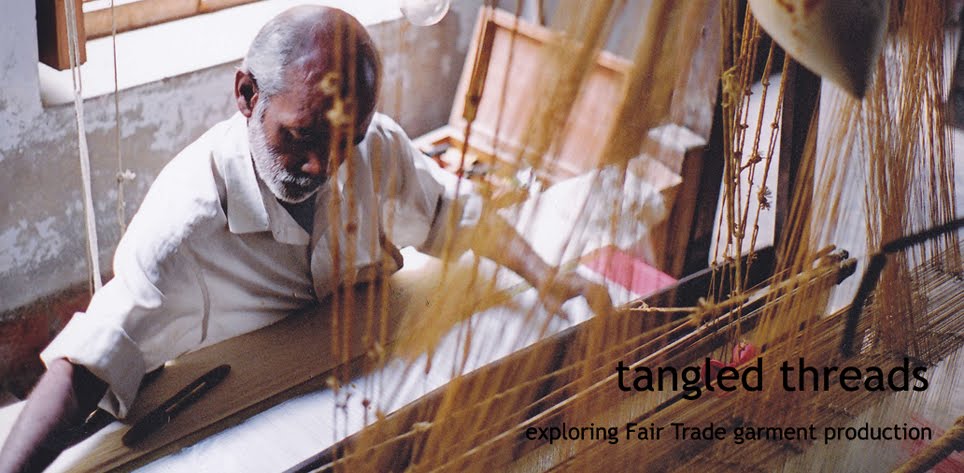

9th July 2010
Safia, Miki, Suraiya (designer and manager for Prokritee) and I headed south to Barisal where we were to meet rural handicraft producers. After a slow start we left Dhaka at 8am after bidding farewell to our other companions who were heading back to UK. We drove for several hours until we made it to the ferry, whilst waiting to load we saw an elephant from the car – it was very friendly and tried to put its trunk in the window. The ferry ride was smooth, even after Miki had told me the statistics of sea accidents in Bangladesh, higher than their road accidents apparently. After another few hours of driving it got greener and greener and wetter and wetter, at one point we were driving along a road with water either side, with no sign of barriers for floods.
Our guest house (where we arrived very late) was made entirely of corrugated iron, and subsequently it was a little warm – say 38 degrees. My hair is starting to resemble a poodle.
The project we visited – Jobarpar Enterprise – makes handmade cards for Fair Trade distributers for Traid Aid in NZ, People Tree in UK and Japan and 10,000 Villages in the US. They mainly work in one large room, sitting at tables doing their craft work. Whilst we were there they were making a large order for Trade Aid, they all genuinely seemed to be enjoying themselves. At about 5 there was a massive down pour, which kept going and going, it did little to cool the air but it was quite spectacular.
We were able to interview a few women about their work and home lives. Jianti is 25 and has two children Prosanto who is 11 and Prinka who is 8, she really enjoys the work and appreciates being able to take work home sometimes. She says that if she was doing another job in this area, she would not be able to afford to eat (the rice pickers earn on average 70 taka per day, for 6 months a year). On average she earns about 3500 taka per month, if she has overtime this can go up to 5,200. Working for Jobarpor means that she is able to get extra medical support of 100 taka per month if she or any of her family were to fall ill. She also gets a percentage of the company’s profit every year. At the moment she spends all of her money on her family, she thinks it is very important for her children to finish school and be able to get good jobs.

No comments:
Post a Comment